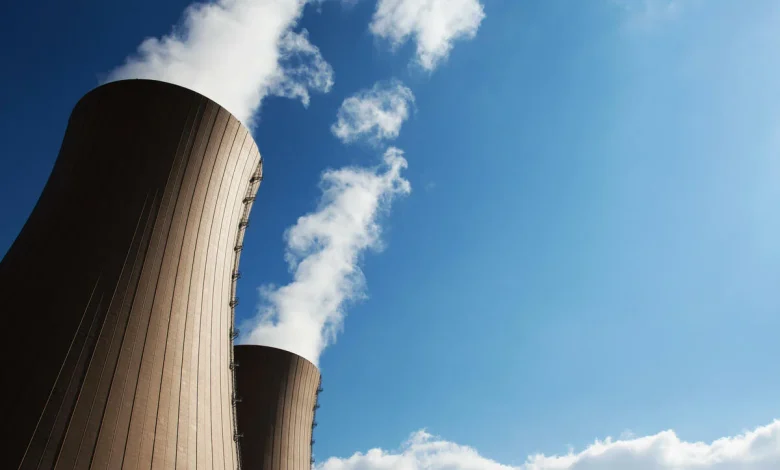Nuclear power plant expansion in the Czech Republic to abandon coal as fuel

Illustration, Photo: Shutterstock
The Dukhovany nuclear power plant in the Czech Republic will receive two new reactors, and the plan is that by 2050, between 50 and 60 percent of electricity in the Czech Republic will come from nuclear power plants.
This $19 billion project is expected to double the Czech Republic’s nuclear production and solidify its place in Europe among the countries that use nuclear energy the most to generate electricity.
South Korean company KHNP has beaten France’s EDF to build a new power plant with two reactors with a capacity of over 1.000 megawatts, which will start operating in the second half of the next decade. This will complement the four 512-megawatt reactors of the Dukhovany plant, which date back to the 1980s.
The agreement with KHNP gives the Czechs the opportunity to build two more units at another nuclear power plant, in Temelin, which now has two 1.000-megawatt reactors.
In addition, they are ready to continue with small “modular nuclear reactors”.
“Nuclear energy will generate between 50 and 60 percent around 2050 in the Czech Republic, maybe a little more,” Petr Zavodsky, chief executive officer of the Dukovani project, told The Associated Press.
Zavodsky added that the expansion of the plant’s nuclear power plant is necessary for the Czech Republic to abandon fossil fuels, ensure a stable and reliable supply at a reasonable price, meet requirements for low emissions of polluting gases, and enable growing demand for electricity in the coming years.
The demand for electricity and the approaching deadlines for significantly reducing carbon pollution have revived interest in nuclear power generation technology.
Nuclear plants do not emit gases, such as carbon dioxide, the main driver of climate change.
The European Union has embraced nuclear energy, including it among environmentally sustainable economic activities, opening the door to financing. This has been a boost for the Czech Republic, Slovakia, Hungary and France – the nuclear leaders on the continent, which already rely heavily on nuclear energy.
Belgium and Sweden have recently abandoned plans to phase out nuclear power. Denmark and Italy are reconsidering its use, while Poland will soon join the group of 12 EU countries that embrace nuclear power after signing a deal with the US company Westinghouse to build three nuclear power units.
In 2024, the EU produced 24 percent of the electricity it consumed in nuclear power plants.
Britain signed a cooperation agreement with the United States in September that Energy Secretary Ed Miliband said would usher in a “golden age of nuclear energy in this country.” It will also invest 14,2 billion pounds ($19 billion) in building the Sizewell C nuclear power plant, the first in the UK since 1995.
CEZ, the leading Czech energy company in which the state has a 70 percent stake, and the British Rolls-Royce SMR have agreed on a strategic partnership for the development and deployment of small, “modular nuclear reactors”.
The Dukovani project is estimated to cost more than $19 billion, and the government has agreed to take an 80 percent stake in the new plant. The government will provide a loan for the new nuclear power plant, which CEZ will repay over 30 years. The state will also guarantee a stable income from electricity production for CEZ for 40 years. Approval is expected from the EU, which aims to become “climate neutral” by 2050.
“We are in a good position to claim that we will not be able to do without new nuclear units,” Zavodski said. “Today we get about 40 percent of our electricity from nuclear energy and 40 percent from coal-fired power plants. It is clear that we have to replace coal,” he said.
Uncertainty over financing has caused significant delays in the expansion of nuclear power. In 2014, CEZ canceled a tender to build two reactors at the existing Temelin nuclear power plant after the government refused to provide financial guarantees.
Russian energy giant Rosatom and China’s CNG were excluded from the Dukhovany tender for security reasons following Russia’s invasion of Ukraine.
CEZ has signed a contract with Westinghouse and France’s Framatome to supply nuclear fuel for its two nuclear power plants, eliminating dependence on Russia. The contract with KHNP provides for fuel supplies for 10 years.
Although atomic energy enjoys public support, skeptical voices can be heard at home and abroad.
Friends of the Earth says it’s too expensive and the money could be better spent improving the industry. In addition, the Czech Republic has no permanent storage facility for spent nuclear fuel.
The Dukovani and Temelin power plants are close to the border with Austria, which abandoned nuclear power after the Chernobyl nuclear disaster in Ukraine in 1986. The dispute over the Temelin power plant led to a political crisis between Prague and Vienna in 2000 and blocked border crossings for weeks.
Austria remains the EU’s most skeptical country about nuclear power, and the lower house of its parliament has already criticized the Czech plan for small, “modular reactors.”
News




